detail profile zez c3 a9 motta
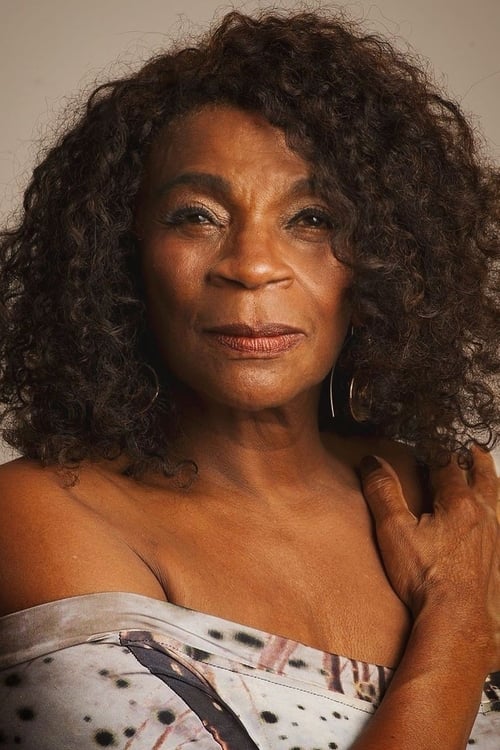
Zezé Motta
Zezé Mota
atau dikenal sebagai
Riwayat Hidup
Maria José Motta de Oliveira OMC (Campos dos Goytacazes, June 27, 1944), better known as Zezé Motta, is a Brazilian actress and singer, considered one of the greatest artists in the country, an exponent of Afro-Brazilian culture.
Zezé has already won numerous awards, including a Candango Trophy at the Brasília Festival, and an Air France Award, in addition to receiving nominations for three Grande Otelo awards and a Guarani Award.
In 2019, she received an Honorary Grand Othello.
Info Pribadi
Peran Yang Di Mainkan Zezé Motta
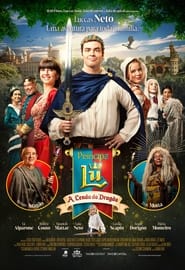 Heir to the throne of the...
Heir to the throne of the...Príncipe Lu e a Lenda do Dragão 2024
Heir to the throne of the Kingdom of Lucebra, Prince Lu lives carefreely, playing pranks on his family and friends. However, according to legend, when he turns 18, he will confront the mysterious Evil Dragon and save the people of Middle Earth. Despite the prophecy, he doesn't believe in the imminent danger and prefers to "troll" his sister, the Enchanted Princess (Gi Alparone), and everyone working in the palace.
 When Alex and Eva choose to...
When Alex and Eva choose to...Wedding Games 2023
When Alex and Eva choose to exchange vows at the very spot they first crossed paths, a series of hilarious missteps derails their journey to the altar.
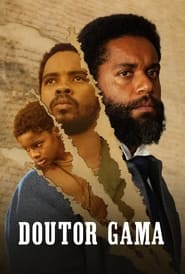 Based on the biography of Luiz...
Based on the biography of Luiz...Dr. Gama 2021
Based on the biography of Luiz Gama, one of the most important characters in Brazilian history, a black man who used the laws and courts to free more than 500 slaves. Born of a free womb, Gama was sold into slavery at the age of 10 to pay off his father's gambling debts. Even as a slave, he became literate, studied and earned his own freedom, becoming one of the most respected lawyers of his time. An abolitionist and republican who inspired an entire country.
 Through clippings the film draws a...
Through clippings the film draws a...De Cabral a George Floyd: Onde Arde o Fogo Sagrado da Liberdade 2020
Through clippings, the film draws a narrative line between the construction of racism in Brazil and the United States, having as base the European invasion of the continent, police violence, the genocide of the black people, the massacre of indigenous peoples, religious violence, the criminalization of funk music, structural racism in art and education, the importance of quota policy and the need urgent historical repair as a commitment by the Brazilian state to the black people.
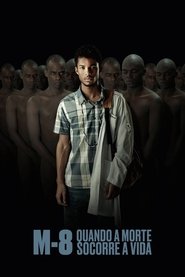 When Maurcio becomes a student at...
When Maurcio becomes a student at...M8 - When Death Rescues Life 2019
When Maurício becomes a student at a top medical school, he becomes obsessed with a mystery linked to the dead bodies used for dissection.
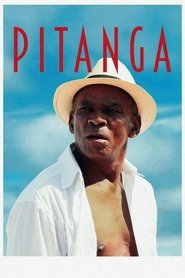 This documentary investigates the aesthetic political...
This documentary investigates the aesthetic political...Pitanga 2016
This documentary investigates the aesthetic, political and existential trajectory of emblematic Black Brazilian actor Antônio Pitanga. His career spans over five decades, and he has worked with iconic Brazilian filmmakers Glauber Rocha, Cacá Diegues and Walter Lima Jr. He was a prominent figurehead and outspoken activist during the Brazilian dictatorship, a period of unrest in Brazilian cinema. "Pitanga" deep dives into the world of Antônio and the history of Brazil. The documentary was directed by his daughter Camila Pitanga, one of widely recognised faces in Brazilian television and cinema right now. The film is also a poem, and a tender ode to fatherhood.
 Biographical film of Sister Dulce who...
Biographical film of Sister Dulce who...Irmã Dulce 2014
Biographical film of Sister Dulce, who, in life, was called the “Good Angel of Bahia”, also nominated for the Nobel Peace Prize and canonized by the Catholic Church. Contemplating from the 1940s to the 1980s, the film shows how the Catholic nun faced an incurable respiratory disease, machismo, the indifference of politicians and even the dogmas of the Church to dedicate her life to the care of the miserable, leaving a legacy that continues today.
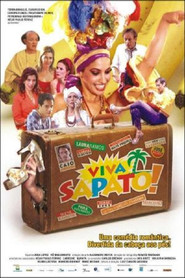 A lighthearted and highspirited story full...
A lighthearted and highspirited story full...Viva Sapato! 2003
A light-hearted and high-spirited story, full of spice, sensuality and romance, Viva Zapato tells the tale of Dolores, a beautiful Cuban dancer who decides to leave her failing marriage and open a restaurant by the beach with her aunt from Brazil. When her aunt sends her a pair of shoes instead of the money to start up the restaurant, she angrily sells the useless gift for spare change. Her dream fades away - until she discovers that the money was hidden in the heel. The zany search for the shoes begins, as she follows the footsteps through the lively streets of Havana, running into the quirky, colorful characters that bring Viva Zapato and Dolores' dream.
 Kira a botanist who is also...
Kira a botanist who is also...Xuxa and the Elves 2: The Road of The Fairies 2002
Kira, a botanist who is also the daughter of elves, must fight the evil wicked witch Algaz. In her quest, Kira will be helped by Epifania, agood witch, elf Daphnis and even Queen Dara, the fairy mother.
 Portraits and excerpts from Brazilian films...
Portraits and excerpts from Brazilian films...Celebração - 100 Anos do Cinema Nacional 1997
"Portraits and excerpts from Brazilian films from all times. Actors, directors and images that affirm cinema."
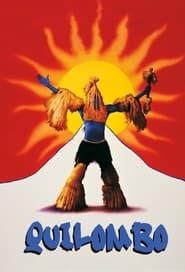 Quilombo dos Palmares was a reallife...
Quilombo dos Palmares was a reallife...Quilombo 1984
Quilombo dos Palmares was a real-life democratic society, created in Brazil in the 17th century. This incredibly elaborate (and surprisingly little-known) film traces the origins of Quilombo, which began as a community of freed slaves. The colony becomes a safe harbor for other outcasts of the world, including Indians and Jews. Ganga Zumba (Toni Tornado) becomes president of Quilombo, the first freely elected leader in the Western Hemisphere. Naturally, the ruling Portuguese want to subjugate Zumba and his followers, but the Quilombians are ready for their would-be oppressors. The end of this Brave New World is not pleasant, but the followers of Zumba and his ideals take to the hills, where they honor his memory to this day. Writer/director Carlos Diegues takes every available opportunity to compare the rise and fall of Quilombo with the state of affairs in modern-day Brazil.
 Poor people who live in the...
Poor people who live in the...Para Viver Um Grande Amor 1984
Poor people who live in the slums in Rio de Janeiro decide to occupy an empty apartment building in the rich part of the city. Meanwhile, a rich girl falls in love with a poor composer. Based on the musical play "Pobre Menina Rica", by Vinícius de Moraes and Carlos Lyra.
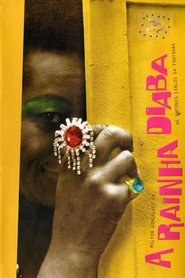 Rios criminal underworld is run by...
Rios criminal underworld is run by...The Devil Queen 1974
Rio's criminal underworld is run by an unexpected boss: a femme Queen with a taste for power and violence. But heavy lies the crown: what Queen can trust her subjects, however fabulous? When she sets up a stoolie to take the fall for her boy, a plot against Her Majesty arises!
 The Alemo community in Rio de...
The Alemo community in Rio de...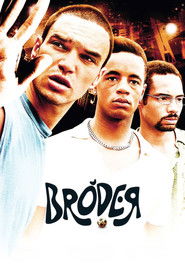 Three childhood friends plan meeting for...
Three childhood friends plan meeting for...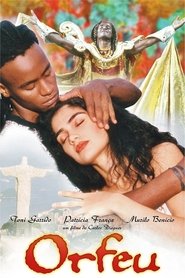 Orfeu is a popular composer from...
Orfeu is a popular composer from... After being exiled for 26 years Tieta...
After being exiled for 26 years Tieta... The story of the great train...
The story of the great train...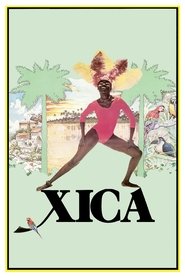 The romanced story of Xica da...
The romanced story of Xica da...